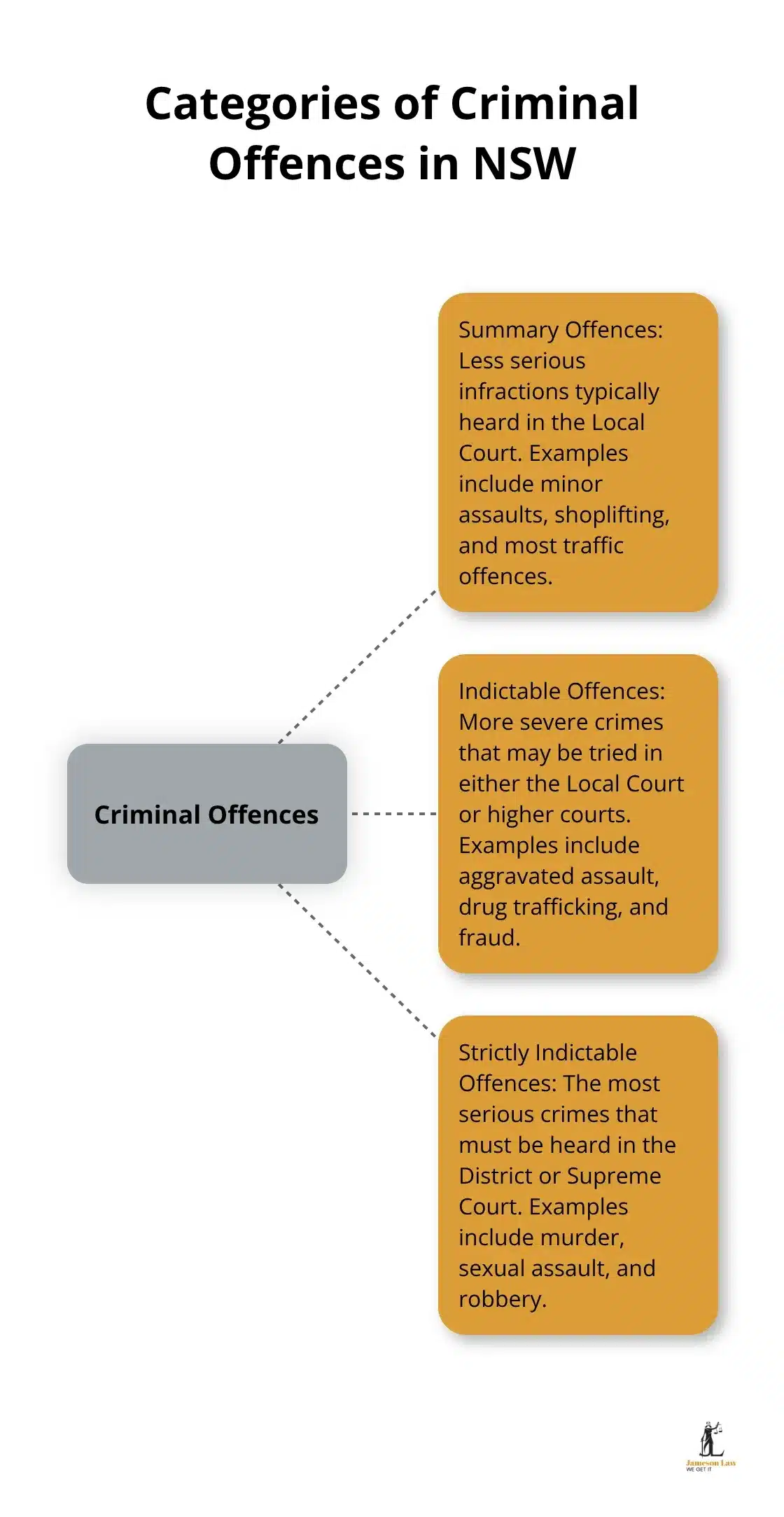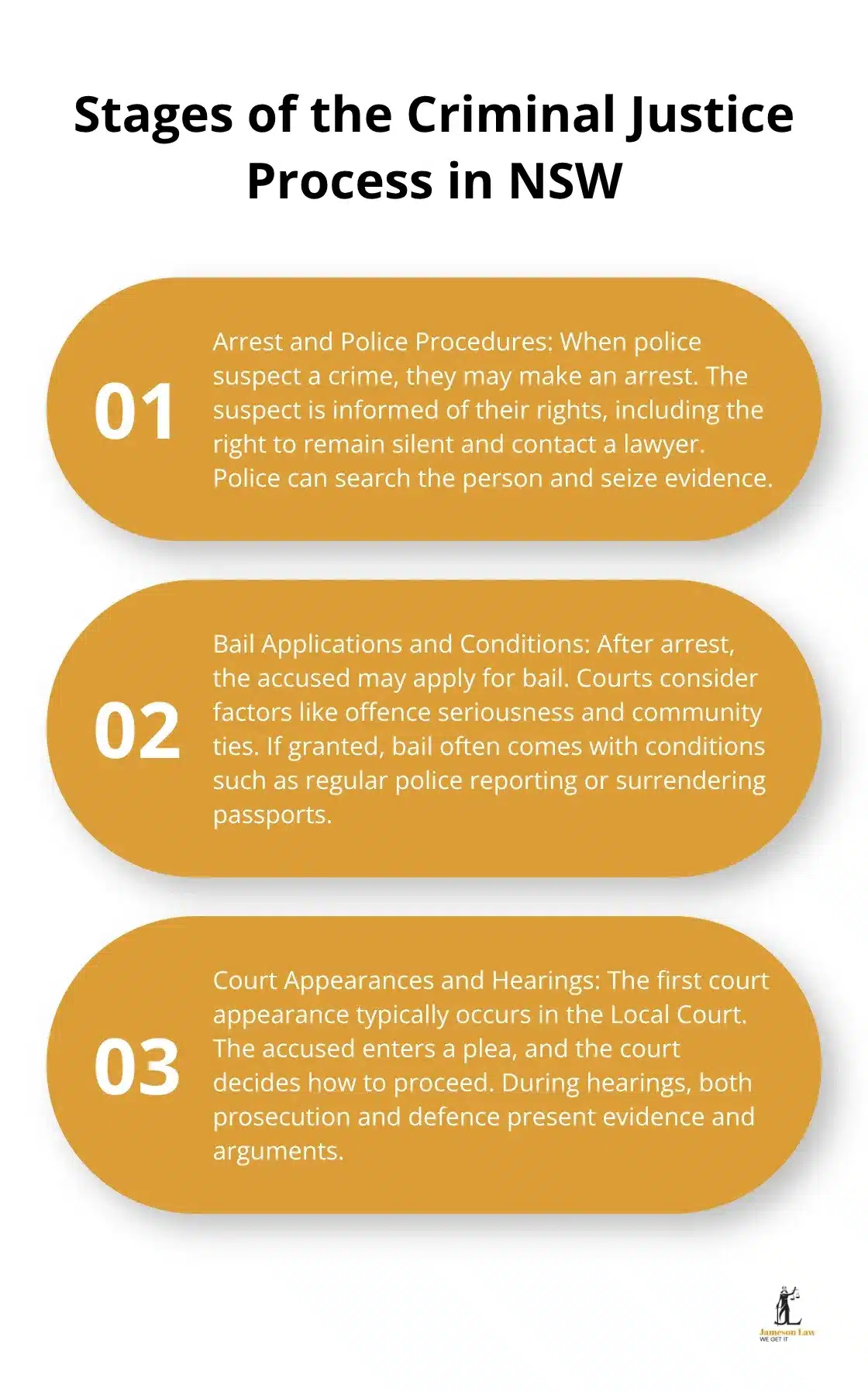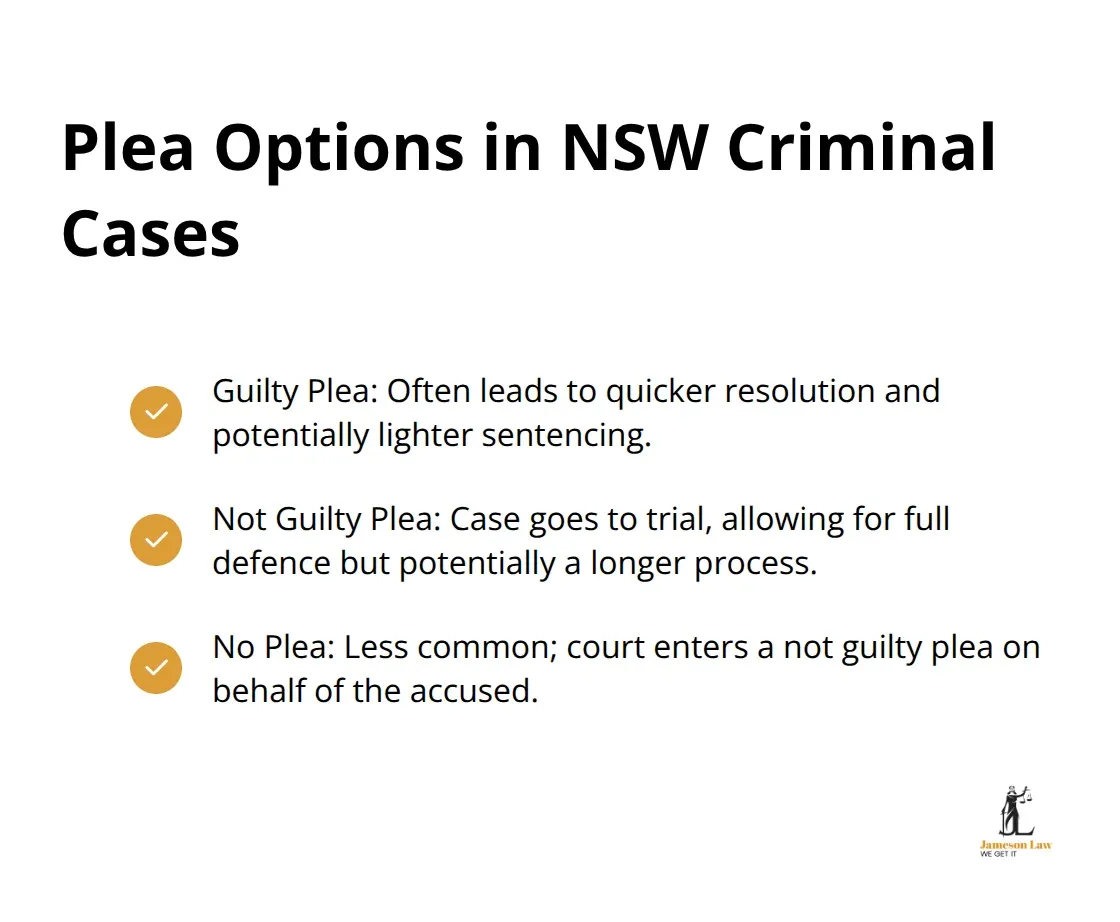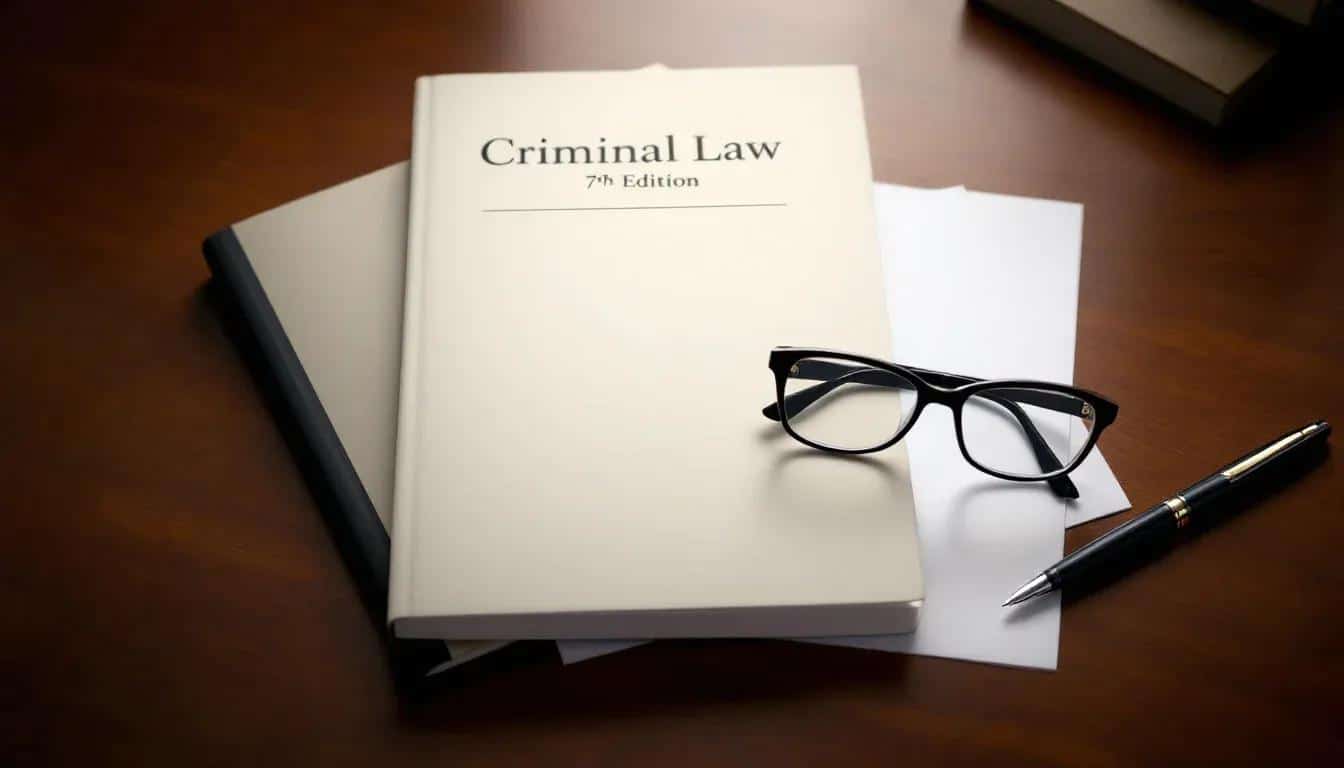Criminal law is a complex field that affects many lives. Understanding its key concepts is vital for anyone navigating the legal system.
At Jameson Law, we have created this guide to explain the essentials of criminal law, drawing from our experience and resources like “Criminal Law 7th Edition”.
We cover crucial topics such as types of offences, the justice process and your rights as a defendant in NSW.
What Are Criminal Offences in NSW?
Definition and Categories of Criminal Offences
In New South Wales, criminal offences are acts or omissions that breach state or federal law, with penalties imposed by the courts. NSW law categorises criminal offences into three main groups: summary, indictable and strictly indictable offences.
Summary offences are less serious and are usually finalised in the Local Court. These include minor assaults, shoplifting and many traffic matters. For crime trends, see the NSW Bureau of Crime Statistics and Research (BOCSAR).
Indictable offences carry more serious consequences and may be dealt with in the Local Court or committed to higher courts depending on seriousness. Examples include aggravated assault, drug supply and fraud. Many offences and maximum penalties are set out in the Crimes Act 1900 (NSW).
Strictly indictable offences are the most serious and must be heard in the District or Supreme Court, including murder, sexual assault and robbery. Procedures are governed by the Criminal Procedure Act 1986 (NSW).

Common Types of Criminal Offences in Sydney
Drug Offences
Drug matters are frequently prosecuted across NSW. The Drug Misuse and Trafficking Act 1985 (NSW) covers possession, supply and manufacture of prohibited drugs. For defence options, see our guide to drug offences.
Assault Charges
The Crimes Act 1900 (NSW) defines assault offences from common assault to grievous bodily harm. Penalties range from fines to lengthy imprisonment depending on the facts. Learn more about assault charges.
Theft and Property Offences
Property offences include break and enter, larceny and receiving. These are set out in Part 4 of the Crimes Act. Our overview of theft offences explains elements and penalties.
Cybercrime
Cybercrime has grown with the digital economy. The Crimes Act includes computer offences such as unauthorised access and identity theft. Offending includes phishing, online fraud and hacking.
Understanding offences and consequences is essential if you are charged. Given the complexity, early legal advice is vital to protect your position.
How Does the Criminal Justice Process Work?
The criminal justice process in NSW runs through several stages from police contact to sentencing.
Arrest and Police Procedures
If police suspect an offence, they may arrest. The Law Enforcement (Powers and Responsibilities) Act 2002 (NSW) requires police to inform you of key rights, including the right to silence and to contact a lawyer. Practical guidance is available at LawAccess NSW and our page on what to do if contacted by police.
Police may search and seize evidence lawfully. You generally only need to provide your name and address. Consider legal advice before any interview.
Bail Applications and Conditions
After charge, the court considers bail under the Bail Act 2013 (NSW). Factors include seriousness, strength of the case and ties to the community. See our bail application guide.
If granted, bail conditions may include reporting, surety, non-contact or surrender of passport. Breaches can lead to arrest and detention.
Court Appearances and Hearings
The first appearance is typically in the Local Court of NSW. Summary matters are finalised there. More serious indictable matters may be committed to the District Court or Supreme Court. Procedures are set by the Criminal Procedure Act 1986.
Both prosecution and defence present evidence and submissions. For a practical overview, see Central Local Court guide and our page on courtroom representation.
Sentencing Options and Appeals
If convicted or a plea is entered, sentencing follows the Crimes (Sentencing Procedure) Act 1999 (NSW). Options include fines, Community Correction Orders, Intensive Correction Orders and imprisonment. See the Judicial Commission of NSW for resources, and our page on sentencing advocacy.
Appeals from the District or Supreme Court go to the NSW Court of Criminal Appeal. Local Court appeals are heard in the District Court. Our team handles appeals across NSW.

Your Rights in a Criminal Case: Understanding the Essentials
Knowing your rights during a criminal case is essential for a fair process. These protections help ensure a just outcome.
Legal Representation: Your First Line of Defence
You have the right to legal representation at all stages, including police interview, bail and court. Consider speaking with us as early as possible. Legal Aid information is available via Legal Aid NSW.
The Burden of Proof: Innocent Until Proven Guilty
The prosecution must prove guilt beyond reasonable doubt. See our explainer on the burden and standards of proof and general evidence rules through LawAccess NSW.
Plea Options: Understanding Your Choices
When charged in NSW, you can enter a guilty plea, not guilty plea or no plea. Each has different implications for timing, evidence and outcome.
Guilty Plea
A guilty plea may lead to an earlier resolution and can earn a sentencing discount. It is not always the best course and requires careful advice.
Not Guilty Plea
A not guilty plea means a hearing or trial where you can challenge the prosecution case and call evidence.
No Plea
If you do not enter a plea, the court will usually record not guilty and list the matter for hearing. Discuss options with a lawyer before deciding. Review your court paperwork and process with us.

These rights and options form the foundation of a fair justice system. Understanding them is the first step to navigating your case effectively.
Final Thoughts
Understanding criminal law basics empowers people in the NSW legal system. The complexities outlined above highlight the need for expert guidance. Professional advice helps interpret the facts, identify legal issues and develop a strong defence strategy.
At Jameson Law, we provide tailored criminal law services in Sydney and across NSW, from initial police contact to court representation. For prompt support, call (02) 8806 0866 or book a consultation.













